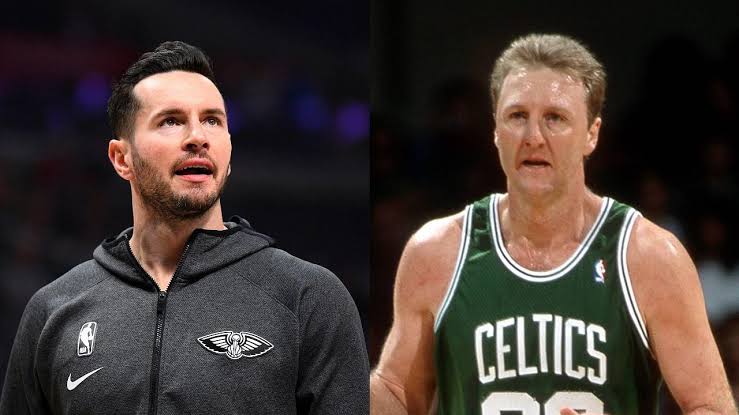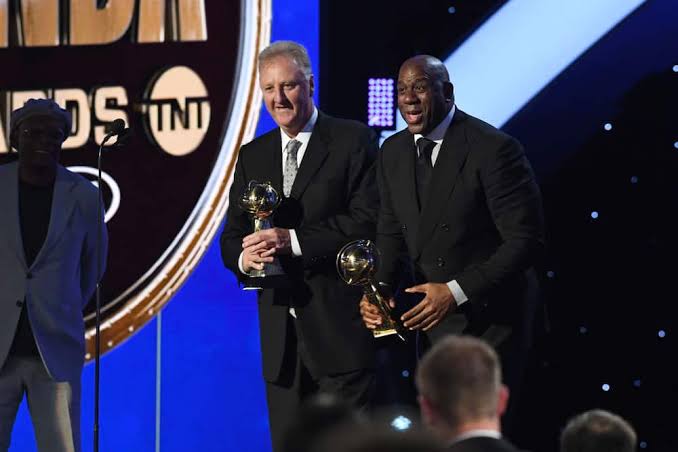Fans Debate Larry Bird’s Legacy After NBA Tribute: “Icons Don’t Quit. He Quit; So He’s Not a True Icon or GOAT”
The NBA’s recent tribute to Larry Bird, celebrating his extraordinary career and numerous contributions to the game, has sparked intense debate among fans. While many praised Bird’s achievements, others questioned his status as an icon and Greatest of All Time (GOAT), citing his early retirement due to injuries as a point of contention.
One comment that particularly resonated was, “Icons don’t quit. He quit; so he’s not a true icon or GOAT.” This remark ignited discussions across social media and sports forums, reflecting the divided opinions on Bird’s legacy.
The Case Against Bird as the GOAT
Critics argue that Bird’s decision to retire in 1992, largely due to chronic back issues, undermines his status as an enduring icon. They believe that true icons exhibit unwavering dedication and resilience, continuing to compete at the highest level despite physical challenges. According to this perspective, Bird’s retirement signifies a form of quitting, which, in their view, disqualifies him from being considered the GOAT.
These detractors often compare Bird to other legends like Michael Jordan and LeBron James, who are celebrated for their longevity and ability to perform at elite levels well into their careers. Jordan’s six championships and LeBron’s sustained excellence over two decades are frequently cited as benchmarks that Bird’s career falls short of due to its relative brevity.

Defending Bird’s Legacy
On the other hand, many fans and analysts staunchly defend Bird, emphasizing the remarkable accomplishments he achieved during his 13-season career. They argue that Bird’s decision to retire was a pragmatic one, made to preserve his long-term health after enduring significant pain and physical limitations.
Supporters highlight Bird’s three NBA championships, three MVP awards, and his role in revitalizing the Boston Celtics and the NBA at large during the 1980s. They point out his legendary rivalry with Magic Johnson, which elevated the sport’s popularity and set new standards for excellence and competitiveness in the league.
Moreover, Bird’s defenders argue that his impact transcends mere statistics and longevity. His court vision, basketball IQ, and competitive fire left an indelible mark on the game. They contend that Bird’s contributions to team success and his ability to elevate the play of those around him are key factors in assessing his greatness.
The Broader Debate on GOAT Criteria
The debate over Bird’s legacy highlights a broader conversation about the criteria for being considered an icon or GOAT in sports. Is it about longevity and durability, or is it about peak performance and the impact on the game during a player’s active years?
This discussion often draws in comparisons to other sports figures who faced similar dilemmas. For example, Sandy Koufax in baseball, who retired early due to injury but is still regarded as one of the greatest pitchers ever. Fans are split on whether overcoming physical adversity or maximizing peak performance should weigh more heavily in GOAT considerations.
Conclusion
The NBA’s tribute to Larry Bird has reignited discussions about his place in basketball history. While some fans criticize his legacy due to his early retirement, many others celebrate his monumental achievements and the indelible impact he had on the sport. This debate underscores the diverse criteria fans use to judge greatness in sports, highlighting that the legacy of an icon like Bird can be both celebrated and scrutinized. Ultimately, Larry Bird’s career remains a testament to excellence, influence, and the complex nature of defining true greatness in athletics.




